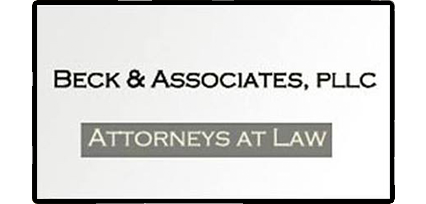Is a Revocable Living Trust really your Best Choice?
Author: Randy Beck
Many people have attended a seminar or have read an article that describes a revocable living trust (RLT) has the greatest thing since sliced bread. The RLT has many advantages; however, it also has several disadvantages when compared to a Last Will and Testament (Will). We will is consider both the advantages and disadvantages so that you can talk intelligently with a legal professional about what might be the best choice for you.
Advantages
First, a fully funded RLT should avoid probate. Unfortunately, many people come to our law firm after the death of a loved one who has left one or more assets out of their RLT. Consequently, a probate is required for even a single bank account or brokerage account left out of the RLT. The good news is that the probate process in the state of Texas is a relatively simple and inexpensive process since Texas law provides for “independent administration” without court supervision or control as long as you have named someone as an independent executor.
Second, the RLT provides a an excellent way to avoid an ancillary probate when someone owns out of state property. Anytime someone has real estate in a state other than Texas, that person should consider using an RLT. We once had a client who owned five pieces of real estate in five different states. Can you imagine the additional cost and time necessary to handle an ancillary probate in each state?
Third, the RLT is frequently used to avoid a will contest. One of our clients had a 42-year-old son, a 38-year-old daughter and a 36-year-old daughter, but he also had four other children under the age of five and a 39-year-old second wife. Do you think it is highly likely that we might anticipate a will contest? If someone is unhappy with the Will, that person can simply file a letter with the judge saying that they believe it is not fair. Then, everything grinds to a halt until the Will contest is resolved. With the RLT, The successor trustee handles the trust administration without any court involvement after the creator of the trust dies. Only if the person who is unhappy with the RLT (1) hires an attorney, (2) files a lawsuit and (3) convinces a judge that the successor trustee should be stopped, does the trust administration become delayed.
Fourth, the RLT can be of great mobility for those people who may move from state to state due to job transfers or retirement. The Last Will and Testament is designed for the state which you reside. The RLT is designed to cross state boundaries much more easily.
Finally, the RLT is very helpful for someone who is suffering or is likely to suffer a long-term disability. Some financial institutions are reluctant to accept a financial power of attorney (also know as a Statutory Durable Power of Attorney), but we have never seen a financial institution refuse to work with a successor trustee of the RLT. When a disability occurs, the last thing you need is difficulty dealing with the financial institutions who are holding the assets needed to care for the disabled person.
Disadvantages
As I mentioned in the beginning, there are some disadvantages when using the RLT. First, in order to avoid probate and obtain the full benefit of the trust, you must retitle your assets and coordinate the beneficiary designations with the RLT. We refer to this as the “hassle factor.” Many people do not want to spend the time or the money to deed their real estate to the RLT or change bank or brokerage account into the name of the RLT. Failing to do so may negate many of the benefits of the RLT.
Second, you must maintain the RLT and keep it fully funded. This means that when you buy a new home or establish a new brokerage account, you must remember to title the home or account in the name of your RLT. We often find that within 5 years after establishing their RLT, a person has acquired assets outside of the Trust.
The final disadvantage is the additional cost. There are simply more documents to prepare for a client. In addition to the RLT document, the client will always have a pour over will design to transfer assets into the trust which of been left out. Frequently, the client will also have transfer documents such as deeds to real estate.
Conclusion
When a person is considering whether the RLT or a Will is best for them, they should discuss with an estate planning attorney The advantages and disadvantage is that apply to them. The attorneys at Beck and associates, PLLC are ready to help The attorneys at Beck & Associates, PLLC are ready to provide you with a clear understanding of the best alternative for you and your family. Please contact us to schedule an estate planning consultation.
